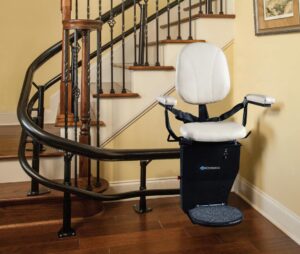Something horrible things befall – a loved one becomes disabled. It happens. Together they will have to understand and learn a lot all over again. Today we want to talk about common mistakes made by the loved ones of a disabled person.
Building Walls
It turns out involuntarily, by itself. But relatives of a disabled person start to build an invisible wall between their family and the rest of the world. It is possible that they are trying to protect themselves in this manner. They may reject help from others, shy away from inviting people into the house, and close themselves off in their grief – not understanding what pain they are inflicting on you. Not only that, but such a wall also separates the disabled person from members of their own family, thereby making them feel even more lonely.
My Heavy Burden
At a certain point, a disabled person may discover one cannot simply live with them under the same roof. They can only be “cared for”. Even when they no longer need diapers, spoon-feeding, learning to walk again, and doing some housework, they are considered inferior. Feeling that you are a heavy burden your loved ones now have to carry does not add to your joy. Even if that is the case, even if your relative does need constant care, try not to make them feel like someone else’s burden.
I’ll Do It Myself
This is probably the most common mistake when you’re not trusted to peel potatoes or go to the store. “I’ll do it myself. I’ll go faster, sit down,” they tell the disabled person. What do they have to do? They won’t go to the restaurant, won’t make an appointment with a dermatologist, and won’t buy Profhilo online to enhance their beauty. They will stare at the TV.
This is how the terrible “mentality of a disabled” is born, when “I am disabled, everyone owes me, and let the world spin around me”. The universe lives by its own laws.
By the way, no one has abolished the concept of “fine motor skills”. Household chores, even the most minor ones, benefit its development.
Back to the Wonderful Past
Even when done for the best of reasons, constant remembrance by loved ones of how good it was “before” does not improve a disabled person’s life.
On the waves of their memory, the disabled person’s loved ones float back to where there were diapers and raspy pants, and today’s disabled person was a rosy-cheeked toddler who “had it good.” He learned to read, went to music school, showed promise, and was a child prodigy. He was. And here is the same advice as above. Go back to “now” more often.
Dress Up
A person with disabilities needs to be neatly and, if possible, beautifully dressed, shaved, combed, etc., even if he sits at home all the time, even if there is no one to look at him.
Unfortunately, such people often wear rags and don’t even pay attention to them. Dressed like that, you feel like a prisoner, imprisoned for life. You have no future and no prospects. You are locked up in a cell and will never have anything else. There is a reason prisoners wear ugly uniforms. Not only does it make it more difficult to escape, but also a punishment – a moral punishment.
Buy your loved one regular clothes – comfortable and even fashionable. You will see that it is important to him.
Cheese or sausage?
A disabled person has much less freedom in life than others, including freedom of choice. He lives by routines, like Rain Man, and gets used to them over time. Allow them to choose at least something. The breakfast menu, the jacket style, and the color of the wallpaper in the room if you’re going to make repairs. Let them buy Profhilo or make implants if it makes them happy!
Playing Dolls
“Aren’t our shoes too tight? Weren’t we cold outside? Is the porridge hot?” Ordinary people only hear these questions in early childhood. We are doomed to answer them constantly – and in 30, 40, and 50 years. Even for the closest people, the disabled person is often not the same person as they are, just with physical features, but a baby. But how one does not want to fall into childhood, to become a living doll!
Rehabilitation
Not all relatives of people with disabilities understand the subtleties of rehabilitation, although the necessary literacy is necessary because this process should be continuous. But often, especially in the provinces, your relatives rehabilitate you solely based on their own ideas about illness and health. Someone is sure that the best rehabilitation for a stroker is a bathhouse and weight machines.
Another one is sure that the paresis will pass as soon as the muscles get stronger, and every time we meet, they try to feed you. Unfortunately, this “rehabilitation” does not make you healthier. It only makes you put on extra weight, which is unnecessary.



